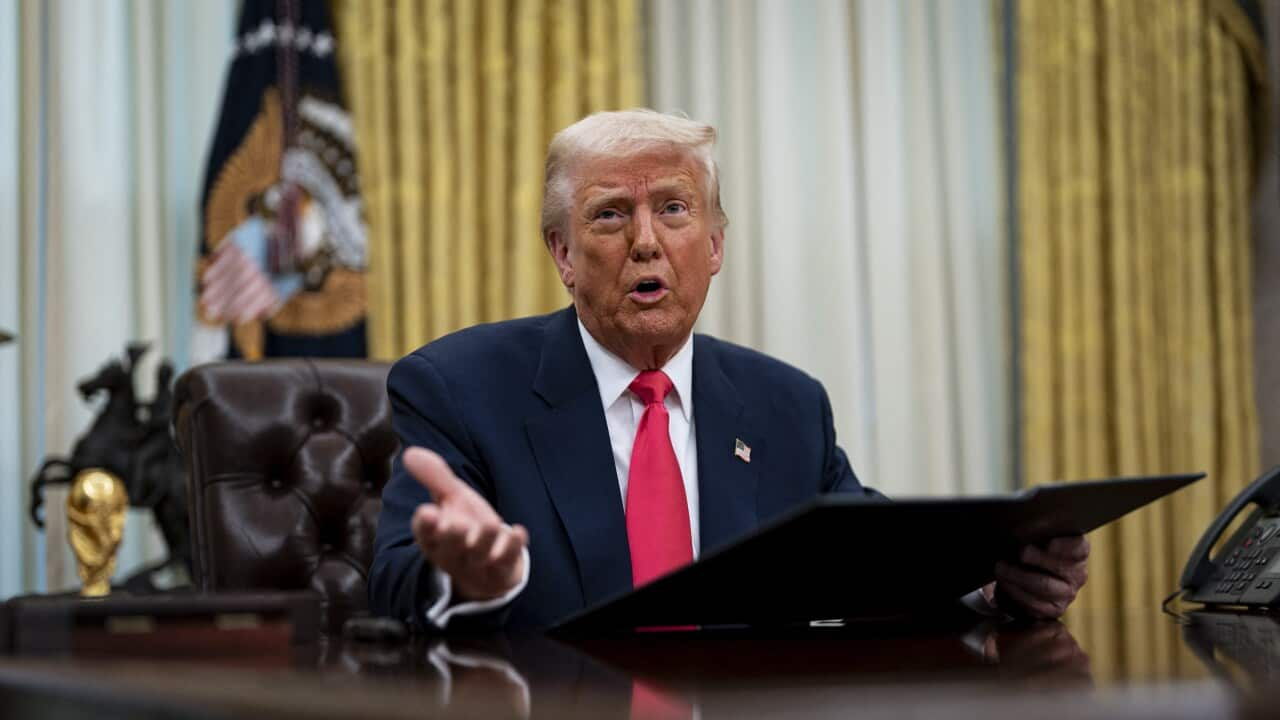United States President Donald Trump cast doubt on Thursday on his willingness to defend Washington's North Atlantic Treaty Organization (NATO) allies, saying he would not do so if they are not paying enough for their own defence.
"It's common sense, right," Trump told reporters in the Oval Office. "If they don't pay, I'm not going to defend them. No, I'm not going to defend them."
Trump said he has been of this view for years and shared it with NATO allies during his 2017-2021 presidential term. Those efforts prompted more spending from other members of the 75-year-old transatlantic alliance, he said, but "even now, it's not enough."
He added: "They should be paying more."
A mutual assistance clause lies at the heart of the NATO alliance, which was formed in 1949 with the primary aim of countering the risk of a Soviet attack on allied territory.
Trump's remarks could trigger alarm bells in capitals from Europe to Asia, where leaders were already worried about a withdrawal of US security support after Trump clashed with Ukrainian President Volodymyr Zelenskyy and showed greater willingness to deal with Russian President Vladimir Putin.
Earlier on Thursday, concerned European leaders backed plans to spend more on defence and pledged to continue to stand by Ukraine.
"I know some may have concerns about NATO's future," NATO secretary general Mark Rutte said earlier on Thursday. "So let me be clear, the Transatlantic relationship and the Transatlantic partnership remains the bedrock of our alliance."
"President Trump has made clear the commitment of the US and his commitment personally to NATO, and it has also made clear the expectation that we in Europe must do more in terms of defence spending."
In the Oval Office, Trump said NATO members were friends of his but questioned whether France or a "couple of others" would protect the United States in a moment of crisis.
"You think they're going to come and protect us? They're supposed to," Trump said. "I'm not so sure."
Trump said he viewed NATO as "potentially good" if what he saw as the spending issue could be fixed. "They're screwing us on trade," he said of the security alliance.
Trump had affirmed the United States' commitments to the mutual defence of NATO as recently as last week during a press conference alongside British Prime Minister Keir Starmer.
At a meeting of European leaders in Brussels, French President Emmanuel Macron responded to Trump's comments by saying France and other European countries had joined US troops in fighting in Afghanistan after 9/11.
"Not only the French, but the Europeans were there when we were called for Afghanistan. And by the way, they weren't politely warned when (the US left Afghanistan)," Macron said. "We are loyal and faithful allies."
Trump accused of 'destroying' world order
Meanwhile, Ukraine's former armed forces chief and now ambassador to Britain, said overnight that the United States was "destroying" the current world order.
Valeriy Zaluzhnyi, a popular general who led Ukraine's defence in the first two years of Moscow's full-scale invasion, spoke asZelenskyy sought to mend fences with Washington after a fiery White House row with Trump.
Zaluzhnyi said Ukraine had held onto its independence despite "animus and threats coming even from friends".
His sharp remarks, made at London's Chatham House think tank, came after Trump froze military aid and intelligence-sharing with Ukraine in moves to push Zelenskyy into peace talks with Russia, while refusing to offer Ukraine security guarantees.
"It's obvious the White House has questioned the unity of the whole Western world," Zaluzhnyi said, adding: "Because we see that it's not just the axis of evil and Russia trying to revise the world order, but the US is finally destroying this order."
Zaluzhnyi is broadly popular in Ukraine and is seen as a potential challenger to Zelenskyy when Ukraine holds elections, although he has voiced no clear ambitions to run for office.
Elections are currently prohibited by the declaration of martial law after Russia began its full-scale invasion in February 2022.
Zelenskyy replaced Zaluzhnyi as army chief last year following battlefield setbacks. Russian forces now hold about 20 per cent of Ukraine and have been gradually advancing in the country's east.
Zaluzhnyi added that Ukraine should receive security guarantees and "should avoid the role of bargaining chip in any negotiations".

